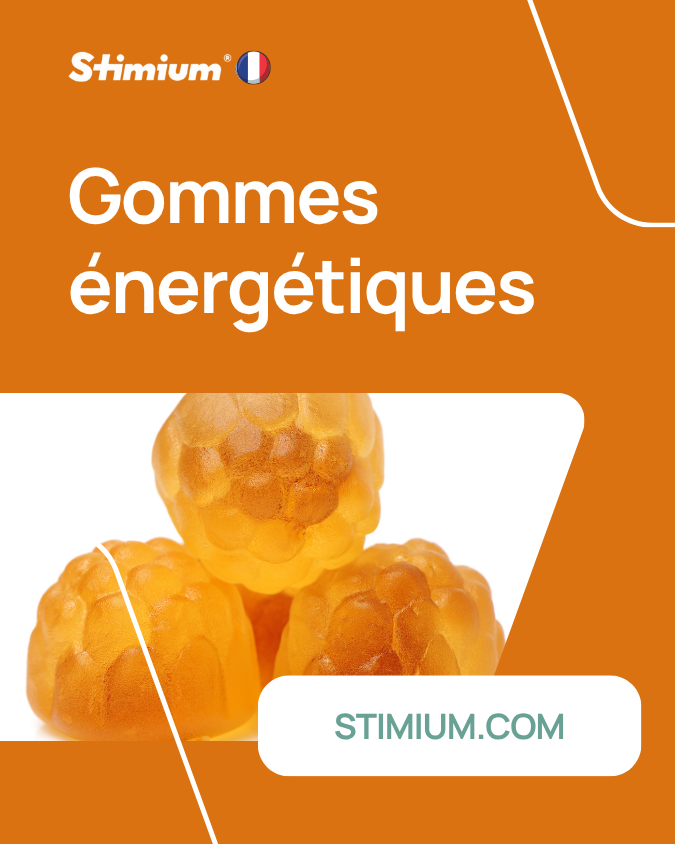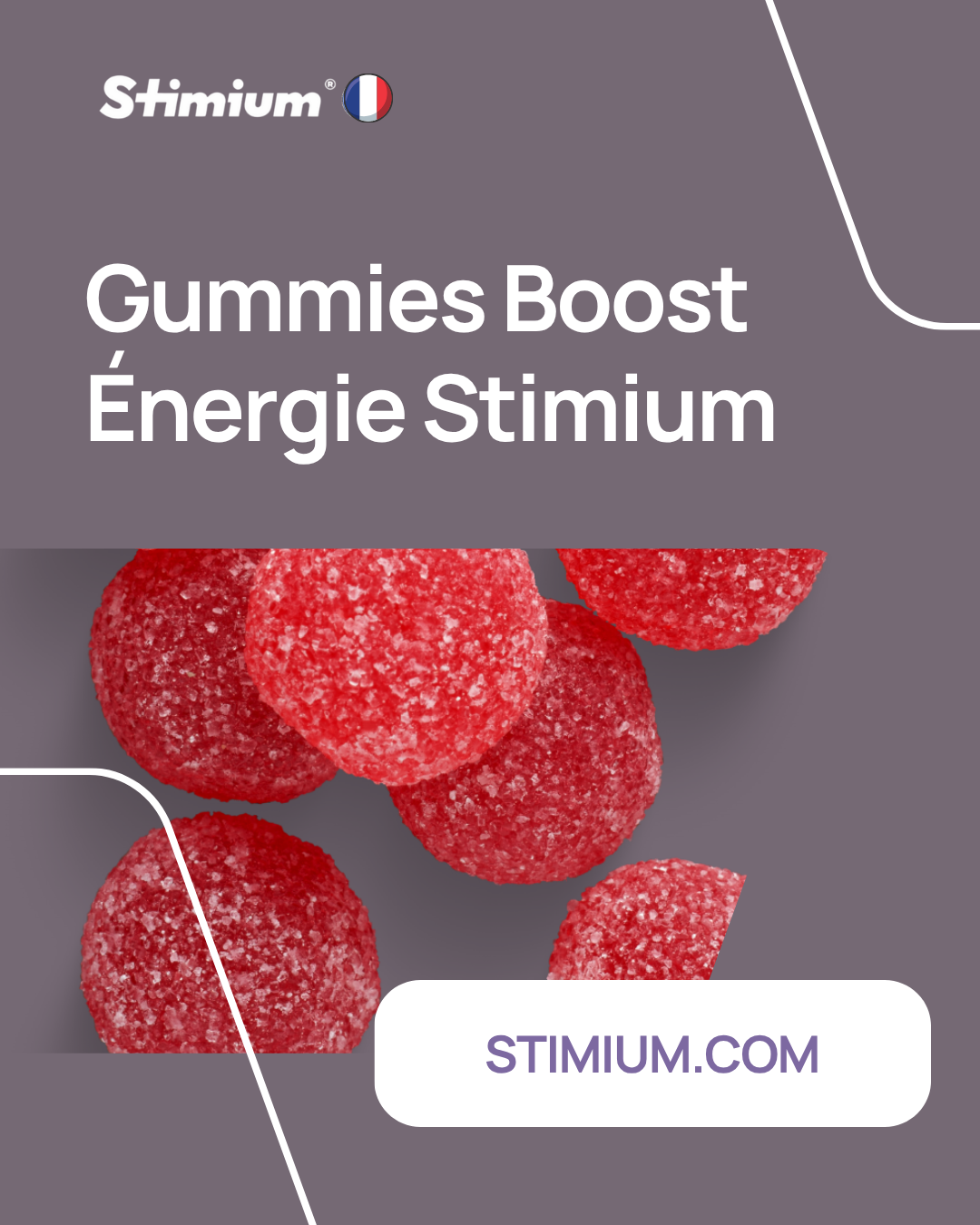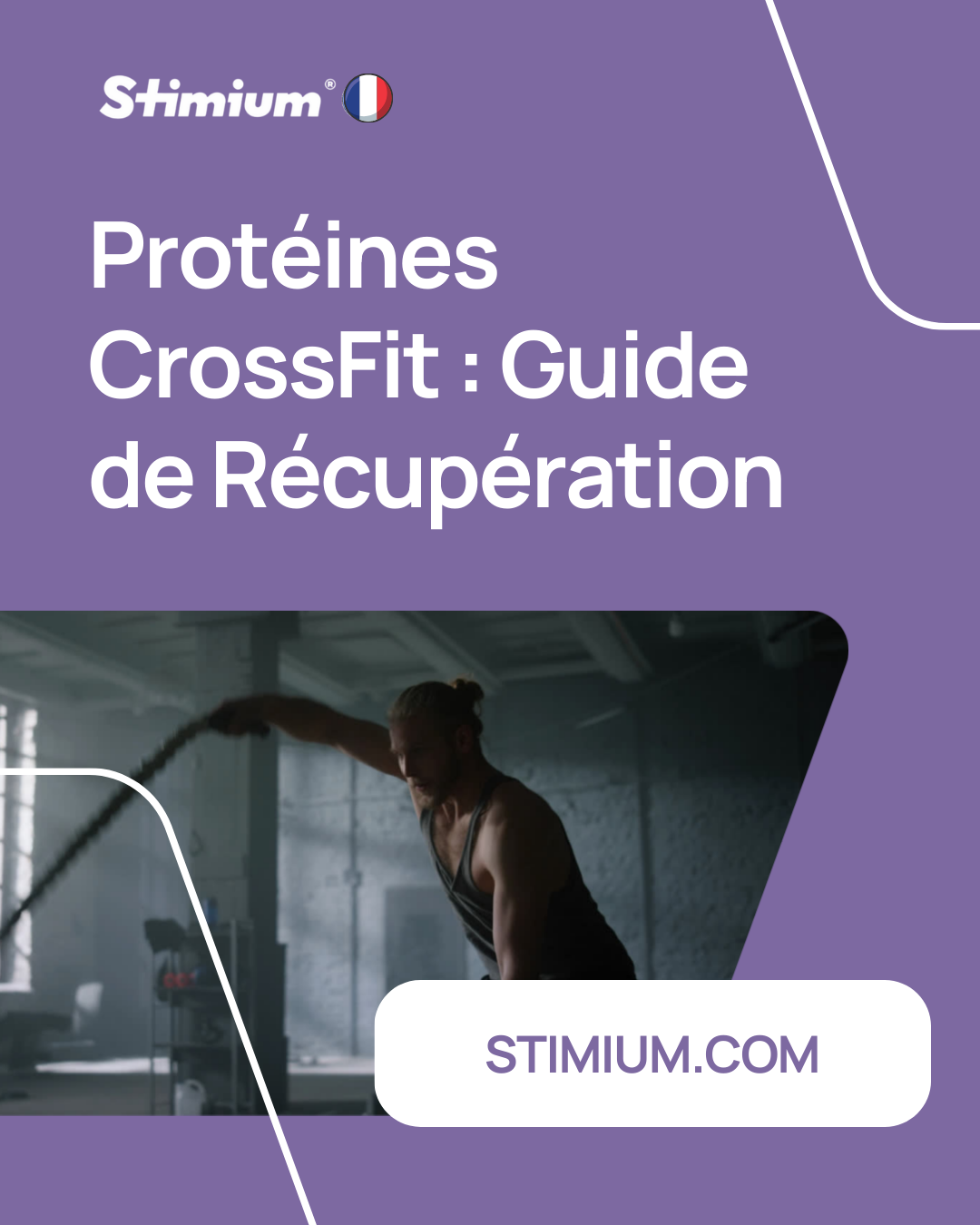Magnesium and recovery: Benefits for Athletes
Magnesium is crucial for performing well and recovering after exercise. It participates in more than 300 reactions in our body. These reactions include creating new proteins and maintaining fluid balance.
During intense training and recovery time later, we need more magnesium. If we don't have enough, we will struggle to perform. So ensuring good magnesium levels is important for any athlete.
Key points :
- Magnesium is crucial for sports performance and muscle recovery.
- It is involved in more than 300 enzymatic reactions.
- Magnesium deficiency can harm athletic performance.
- Magnesium requirements are increased during intense exercise and recovery.
- It is possible to meet magnesium needs through a balanced diet or food supplements.
Magnesium needs among athletes
Athletes need more magnesium due to their intense activity and loss of minerals. Magnesium is vital for muscles, the body's energy and electrolyte balance. Thus, it is a key element for their performance.
Not having enough magnesium can lead to tired muscles, cramps, and less strength. To be in their best shape, athletes must take enough magnesium. It also helps you recover better after exercise.
In general, women need 300 mg of magnesium per day and men need 380 mg. But for athletes, it sometimes takes up to 20% more, due to training losses. Ensuring a good intake is crucial.
|
Magnesium requirements (in mg) |
Women |
Men |
Sportsmen |
|
Recommended daily allowance |
300 |
380 |
~330-420 |
A well-balanced diet helps meet part of the magnesium needs of athletes. Foods like spinach, nuts, etc., are full of magnesium. But often, not all needs are covered. Supplements can be helpful if needed.
The benefits of magnesium for sports performance
Magnesium is very important for athletes. It helps in a lot of key areas. For example, it is useful for energy, muscles and reduces fatigue.
This mineral is crucial for producing energy. It helps use glucose, which is vital for muscles. This improves the endurance and performance of athletes.
Magnesium also plays a role in nerve signals. It improves communication between nerve cells. This helps to better coordinate movements and reduces the feeling of fatigue during exercise.
It is important for muscle contraction too. Without magnesium, calcium cannot be controlled well. This can affect the muscles' ability to function properly.
Magnesium promotes protein synthesis. This is crucial for repairing and building muscle. Adding this mineral to your diet can decrease your post-workout recovery time.
In addition, it helps fight fatigue. If you have less, you are more alert and efficient. Make sure you have enough to stay fit longer.
To conclude, magnesium is vital for any athlete. It improves energy, muscles and reduces fatigue. Taking supplements or choosing foods rich in magnesium is a good idea. This helps athletes excel and achieve their goals in sport.
Food sources of magnesium
Many foods contain magnesium. This offers a natural way to make sure you have enough. Here are the main sources:
- Fruits: bananas, avocados, oranges, kiwis
- Vegetables: spinach, broccoli, zucchini, sweet potatoes
- Whole grains: quinoa, oats, brown rice, whole wheat
- Seafood: shrimp, mussels, salmon, sardines
Eating a variety of fruits and vegetables every day is good for getting enough magnesium. Steam or bake them to retain more nutrients. It is better to choose whole grains like quinoa or brown rice.
Lentils, chickpeas, almonds and cashews are also excellent sources of magnesium. It is therefore good to include them in your diet too.
Sometimes taking dietary supplements can help meet magnesium requirements. But you have to choose good quality products. Consult a healthcare professional for the correct ones.
Example table:
|
Food |
Magnesium content (per 100g) |
|
Bananas |
27mg |
|
Spinach |
79mg |
|
Quinoa |
197mg |
|
Shrimp |
48mg |
Magnesium supplementation for athletes
Athletes may need more magnesium. If their body is lacking it, it may be a good idea to take supplements. There are several types of magnesium, such as marine magnesium, magnesium citrate, magnesium carbonate, and magnesium bisglycinate. Choosing the right type is important so that it is well absorbed and tolerated. A doctor can tell you how much to take depending on each case.
"Taking extra magnesium can help athletes who train hard. But you have to choose those that digest well and are well absorbed. Marine magnesium is great for this. And, it's best to ask a doctor how much to take ." - Dr. Thomas Dupont, sports nutrition expert
If you're an athlete, taking extra magnesium can help. But, you need to choose the right products that are well absorbed and do not irritate your stomach. Marine magnesium is often preferred for these reasons. Ask a doctor how much is right for you.
Comparison of forms of magnesium for supplementation
|
Form of magnesium |
Bioavailability |
Digestive tolerance |
|
Marine magnesium |
High |
Good |
|
Magnesium citrate |
Average |
Good |
|
Magnesium carbonate |
Down |
Average |
|
Magnesium bisglycinate |
High |
Good |
The effects of magnesium on fatigue, recovery and muscles
Magnesium plays a very important role in how we move and our health. It is vital for our muscles and when we recover after exercise. Without enough magnesium, we can feel very tired, have cramps and our muscles will not function well.
It is crucial for many reactions that help our muscles produce energy. With enough magnesium, you can avoid being too tired and stay energetic throughout the day.
Magnesium also helps our muscles function well. It helps them tense and relax properly, which is super important for practicing a sport well and recovering afterwards.
It is also useful for preventing cramps. These cramps are often due to a disruption of elements in our muscles. Magnesium helps keep this balance.
To benefit from all these benefits, you must eat foods rich in magnesium. This includes vegetables like spinach, whole grains, nuts and seafood.
Foods rich in magnesium
|
Food |
Magnesium content (per 100g) |
|
Spinach |
79 mg |
|
Almonds |
270 mg |
|
Pumpkin seeds |
534 mg |
|
Cod |
97 mg |
|
Black beans |
120 mg |
However, it can be hard for athletes to get all the magnesium they need through diet alone. In these cases, magnesium supplements can help. But it is better to seek advice from an expert on nutrition.
In short, magnesium has key effects for our energy, our recovery and preventing cramps. It's important to have enough to perform well in sports and feel good. We can find it in what we eat or with supplements, if necessary, to help our body.
Magnesium to reduce stress and improve nervous balance
Magnesium is crucial for reducing stress and increasing nervous balance. Athletes often face stress, whether in competition or training. This stress can harm our nervous balance and our ability to concentrate.
Magnesium helps calm anxiety and improve relaxation. By taking magnesium, you can maintain better nervous balance. This positively influences our motivation and our ability to concentrate during competitions.
As Dr. Jean Dupont notes, it also helps muscle relaxation and the transmission of nerve signals.
In addition to managing stress, magnesium boosts our mental abilities. It is essential for producing neurotransmitters. This improves the connection between nerve cells and our mental clarity.
Magnesium in pressure management:
“Magnesium can also help athletes stay calm and focused during competition. By balancing our nervous system, it allows us to cope with the stress of important moments,” says Dr Sophie Martin, a sports psychologist.
It is vital to consume enough magnesium to see these benefits. In addition to a good diet, a magnesium supplement can help. But, it is better to consult a professional to find the right supplement.
Stimulate your recovery with Stimium Mc3, an essential ally after exercise!
Its exclusive formula, combining citrulline malate and magnesium, effectively combats fatigue and relieves cramps, allowing you to go beyond your sporting limits. Citrulline malate, the result of development by Stimium Laboratories, promotes the production of nitric oxide, essential for the vasodilation of blood vessels, thus improving blood circulation. This action ensures a better supply of nutrients to the muscles, while promoting the elimination of metabolic waste, thus prolonging muscular performance and accelerating recovery.
What sets Stimium Mc3 apart in the market is its citrulline malate designed to stimulate the resynthesis of ATP, an energy molecule essential for muscle contraction. Our unique formula skillfully combines citrulline and malic acid, the latter helping to eliminate lactic acid produced during exercise, while citrulline reduces muscle fatigue by eliminating ammonia.
Whether you practice intense sports like running, trail running or triathlon, or you are passionate about team sports like football, basketball or rugby, Stimium Mc3 supports you to exceed your limits and recover more effectively . Our product guarantees an effective fight against physical and muscular fatigue, giving you the energy necessary to carry out sessions without aches or cramps.
You can have confidence in the quality and safety of our products: Stimium is a French brand, committed to sports nutrition and respecting the strictest manufacturing standards in France and Europe. All our products comply with WADA (World Anti-Doping Agency) regulations, guaranteeing ethical sports practice.
To learn more about the benefits of citrulline malate and its impact on your preparation, performance and recovery, click here. Choose Stimium Mc3, the reference in effective and efficient recovery!
Conclusion
Magnesium is very important for athletes. It boosts performance, helps recover after exercise and maintains nervous balance. Having enough magnesium helps athletes avoid injuries and shine in their sport.
To include more magnesium in your natural diet, you should choose foods like fruits, vegetables and whole grains, as well as seafood. But sometimes supplements are necessary. They offer a variety of well-tolerated forms of magnesium. Better to consult an expert before supplementing.
Magnesium not only helps muscles, it is also beneficial for managing stress, maintaining good nervous balance and improving mental performance. Except in sport, everyone can benefit from its positive effects. A good dose of magnesium and exercise can do a lot for health and results.
FAQs
What role does magnesium play in muscle recovery?
Magnesium is crucial for recovery after exercise. It helps cells regenerate and reduces fatigue. It also boosts protein building.
Can magnesium supplements improve sports performance?
In fact, yes. These support better recovery. They reduce exhaustion and stabilize electrolyte balance.
What are the benefits of magnesium for sports performance?
Magnesium helps with energy metabolism and protein synthesis. It also facilitates muscle contraction and reduces fatigue. This therefore improves sports performance.
What are the main food sources of magnesium?
Magnesium is found in fruits and vegetables, whole grains and seafood. Eating a balanced diet and choosing these foods helps ensure a good magnesium intake.
Are magnesium supplements recommended for athletes?
Magnesium supplements can be good for athletes. This ensures a sufficient intake, especially if you need more or have a deficiency. It is better to choose a well-absorbed version and listen to the advice of a healthcare professional.
What are the effects of magnesium on fatigue, recovery and muscles?
Magnesium helps with energy and muscle contraction. It also reduces muscle fatigue. This allows for faster recovery and keeps muscles in shape.
How can magnesium help reduce stress and improve nervous balance?
Magnesium is key to lowering stress. It contributes to good nervous and mental balance. It can reduce anxiety, improve concentration and help athletes stay calm during competition.
In conclusion, what role does magnesium play in the recovery of athletes?
Magnesium is vital for recovery after exercise. It regenerates cells, reduces fatigue and helps make proteins. Getting enough magnesium is crucial, whether through diet or supplements.







